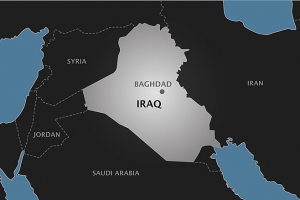Iraq: Lack of Transparency in 26 Executions
Torture, Fair Trial Concerns Require Immediate Moratorium
Iraq carried out at least 26 executions on August 27 and 29, 2012, but provided few details about the identity of those executed or the charges against them. The Justice Ministry has announced 96 executions so far in 2012.

Those executed included one Saudi and one Syrian citizen and three women. Authorities said that all had been convicted on charges “related to terrorism,” but provided little information about what crimes they had committed. Human Rights Watch has previously documented the prevalence of unfair trials and torture in detention, particularly in national security and terrorism-related cases.
“There is no doubt that Iraq still has a serious terrorism problem, but it also has a huge problem with torture and unfair trials,” said Joe Stork, deputy Middle East director at Human Rights Watch. “The lack of transparency around these convictions and executions, in a country where confessions that may have been coerced are often the only evidence against a person, makes it crucial for Iraq to declare an immediate moratorium on all executions.”
Human Rights Watch opposes the death penalty in all circumstances because it is unique in its cruelty and finality, and is plagued with arbitrariness, prejudice, and error.
Iraqi authorities rarely announce executions beforehandand have not made public the total number of executions in a given year, Human Rights Watch said.
An August 30 statement released by Iraq’s parliament said that members of the Human Rights Committee had met on the previous day to discuss “a mechanism for slowing down executions.” Members told Iraqi media that they had contacted Justice Minister Hassan al-Shimmari to inquire about concerns expressed this week by politicians and nongovernmental organizations that executions of about 200 prisoners now on death-row were being accelerated in anticipation of the passage of an amnesty law currently before parliament. Al-Shimmari denied these claims.
On August 29, Human Rights Watch spoke with two Justice Ministry officials as well as a guard in a prison run by the ministry and an inmate currently in another facility. All said that hundreds of inmates had begun hunger strikes on August 28 in Baghdad’s Taji and Rusafa prisons to protest the recent executions and concern about the alleged plan to accelerate other executions. According to the inmate, guards had told prisoners about such a plan in the days preceding the latest executions. Human Rights Watch could not confirm the existence of such a plan.
On July 27, Iraq’s Interior Ministry announced that the Court of Cassation had upheld death sentences for 196 prisoners in Anbar province, drawing strong criticism from the United Nations Special Rapporteur on arbitrary executions. According to the United Nations, more than 1,200 people are believed to have been sentenced to death in Iraq since 2004. The number of prisoners executed during that period has not been revealed publicly. Iraqi law authorizes the death penalty for close to 50 crimes, including terrorism, kidnapping, and murder, but also including such offenses as damage to public property.
“The government should disclose the identities, locations, and status of all prisoners on death row, the crimes for which they have been convicted, the evidence supporting their conviction, and details of any impending executions,” Stork said.
International human rights law requires that where the death penalty has not been abolished, it should be imposed only in cases for the most serious crimes and after scrupulous adherence tointernational fair trial standards, including the rights of the defendant to competent defense counsel, to be presumed innocent until proven guilty, and not to be compelled to confess guilt.
Criminal trials in Iraq often violate these minimum guarantees, Human Rights Watch said. Many defendants are unable to pursue a meaningful defense or to challenge evidence against them, and lengthy pretrial detention without judicial review is common.
Source: Human Rights Watch
- 479 reads
Human Rights
Ringing FOWPAL’s Peace Bell for the World:Nobel Peace Prize Laureates’ Visions and Actions

Protecting the World’s Cultural Diversity for a Sustainable Future

The Peace Bell Resonates at the 27th Eurasian Economic Summit

Declaration of World Day of the Power of Hope Endorsed by People in 158 Nations

Puppet Show I International Friendship Day 2020

